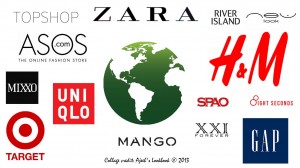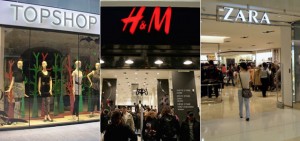Joe Fresh is one of the popular and successful Canadian fast fashion brands in North America fast fashion market. Joe’s business model is selling products at ultra low prices grounded on manufacturing clothes at low cost in some developing countries, for instance Bangladesh, and its image is the symbol of “Fresh”, which means bright, colorful, and playful fashion. The most significant thing happened to Joe lately is that it experienced a challenge about ethical issues in April 2013; specifically, an eight-story factory called Rana Plaza in Dhaka, capital of Bangladesh, that manufactured clothes for Joe Fresh collapse. The most serious problem is that 1,127 individuals were killed by this disaster, including numerous children and women. Besides people being killed by the collapsing, hundreds of workers died in several destructive fires at Bangladeshi garment factories. As many inculpable and impoverished people lost their lives, this accident is concentrated other individuals’ attention on whether western clothing brands abide by the social responsibility and treat their employees in developing countries fairly or not. Moreover, plentiful ethical questions arise through this disaster as well.

From my point of view, many fast fashion brands give priority to maximizing their profits without considering seeking to meet various social and environmental goals. In other words, these companies concentrate on an invisible hand of open and free competition to make the most of their benefits. As we know, the main philosophy of fast fashion brands is quickly manufacturing at an affordable prices. Not only the price is attractive, but also is the fashionable style of fast fashion absorbing. More specifically, the market positioning of fast fashion brands is similar to fast food, it is convenient, fast, and inexpensive. Also, one of the most important reasons why fast fashion brands are crazily popular in recent fashion industry is that fast fashion captures the most popular fashion trends presented in fashion week every season. Since the competition is increasingly stiff in fast fashion industry, the only thing many fast fashion brands care about is profits. However, many customers complain about the quality of clothes and criticize its products like garbage. It is manifest that many fast fashion brands does not conform to social responsibility of business; precisely, it may not cater to consumers’ need of product quality.


2 Comments
The trouble with fast fashion is that there is a huge demand from consumers for clothes that are cheap and disposable. People also aren’t aware of the true cost of the clothes that they wear. $5 T-shirts are only made possible by factory owners cutting costs which result in unsafe working conditions, and extremely low wages, leading to troubling accidents such as this. In addition, as easy as it is to critique companies that produce fast fashion, we need to look at our own purchase choices as consumers and take a firm stand to buy clothes that have been produced ethically and sustainably.
When we think of fast fashion we associate with cheap, huge variety, and always changing. The demand for consumers in the first world is huge, people are used to buying frequently, and spending the least amount of money as possible. Your post outlines one aspect of the dangers, another that is mentioned in the True Cost documentary was that the donations of clothing coming from first world countries are actually unwanted in the third world countries and often end up like garbage. We as consumers really need to rethink our wants and needs.